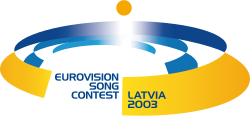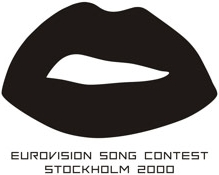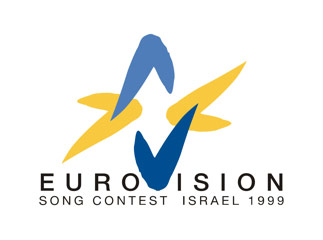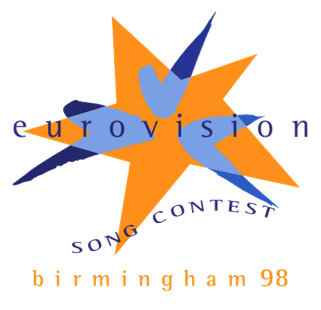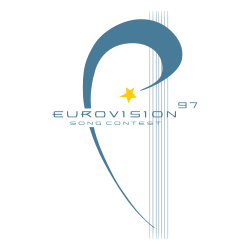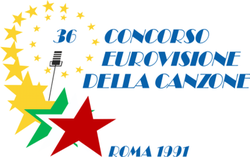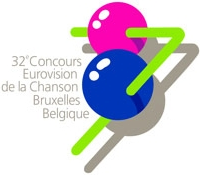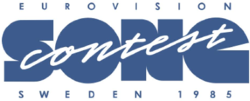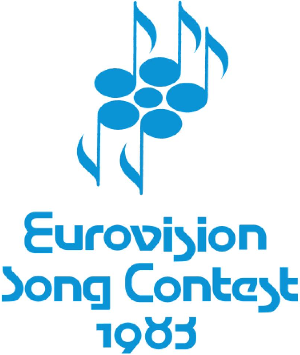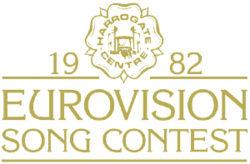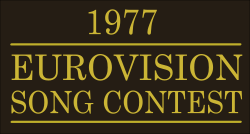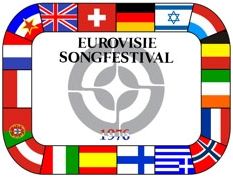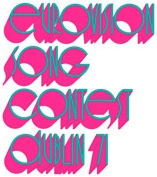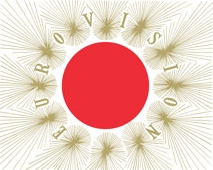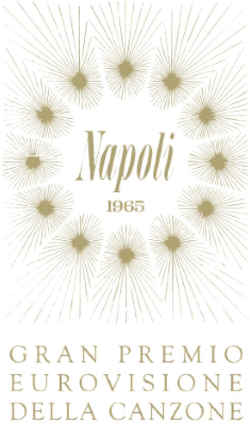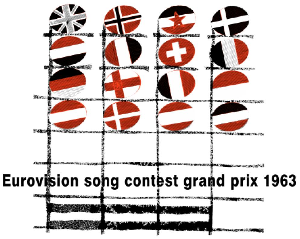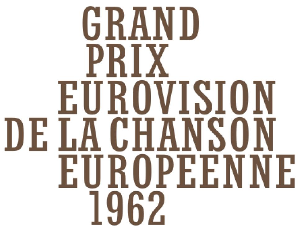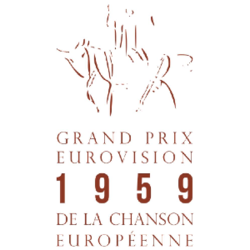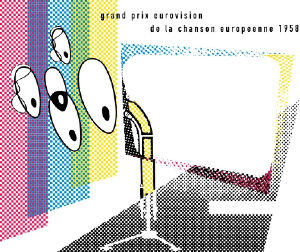The Eurovision Song Contest 2003 was the 48th annual Eurovision Song Contest. The contest took place in Riga, Latvia on 24 May 2003, following Marie N's win in the 2002 contest with the song "I Wanna". It was the first win and hosting of the competition for Latvia with only their third participation after debuting at the 2000 contest. Latvijas Televīzija (LTV) chose the Skonto Hall as the venue after conducting a bidding process among several cities and venues in Latvia. The hosts for the contest were the previous year's winner Marie N and former Latvian representative at the 2000 contest, Renārs Kaupers, who competed in the contest as part of the band Brainstorm. The design of the contest was built around the theme "Magical rendez-vous", which represented the meeting of the various European nations coming to Latvia and encountering Latvia's versatile landscapes. Twenty-six countries participated, which saw the return of Iceland, Ireland, Netherlands, Norway and Poland after having been relegated from competing the previous year, Portugal returning to the contest after withdrawing the previous year, while Ukraine participated in the contest for the first time. Denmark, Finland, Lithuania, Macedonia and Switzerland were required to withdraw due to their poor results in the 2002 contest.
The winner for 2003 was Turkey with the song "Everyway That I Can" sung by Sertab Erener, which scored 167 points, narrowly beating Belgium into second place with a margin of 2 points and Russia into third place with a margin of 3 points. This was the first win for Turkey at the Eurovision Song Contest. Norway and Sweden rounded out of the top five, placing fourth and fifth respectively. The United Kingdom achieved their worst result to date, coming in last place (26th) and scoring no points from any of the twenty-six voting nations. The 2003 contest was the last contest to take place on one evening. The European Broadcasting Union (EBU) revealed that it would be adding a semi-final show to the competition in order to accommodate the growing number of interested countries wishing to take part in the contest. This was also the last contest in which a relegation system was used to determine which countries would participate in the following year's contest. The contest also marked the fifth time in the history of the competition where all participants were participating for the first time; there were no returning artists that had already competed in the contest on a previous occasion.
Full Show, Spanish Commentary (TVE) by Jose Luis Uribarri
DOWNLOAD: MEGA (mp4)
jueves, 7 de enero de 2016
[VIDEO] Eurovision Song Contest 2002 - Full Show (Spanish Commentary)
The Eurovision Song Contest 2002 was the 47th edition of the Eurovision Song Contest.
It took place on 25 May 2002 at the Saku Suurhall Arena in Tallinn, Estonia.
The contest was won by Latvia's Marie N and her song "I Wanna", which won by a tight margin over Malta's Ira Losco. Third place went to both the United Kingdom and host country Estonia, with France completing the Top 5.
There had been worries about whether Estonian broadcaster ETV would be able to fund the event; however, worries were put to rest when a combination of fundraising activities and the Estonian Government enabled them to host the event. The theme implemented for this year's contest was 'a modern fairytale', which was evident in the postcards aired between the songs, which showed classic fairytales ending with Estonian situations.[2][3]
The show began with 2001 winners Tanel Padar and Dave Benton performing a reprise of their winning entry "Everybody". The hosts for the evening, Annely Peebo and Marko Matvere, gave a performance of "A Little Story in the Music", composed by Raimond Valgre and arranged especially for the event, during the commercial break between the songs from Sweden and Finland.
Full Show, Spanish Commentary (TVE)
DOWNLOAD: MEGA (mp4)
It took place on 25 May 2002 at the Saku Suurhall Arena in Tallinn, Estonia.
The contest was won by Latvia's Marie N and her song "I Wanna", which won by a tight margin over Malta's Ira Losco. Third place went to both the United Kingdom and host country Estonia, with France completing the Top 5.
There had been worries about whether Estonian broadcaster ETV would be able to fund the event; however, worries were put to rest when a combination of fundraising activities and the Estonian Government enabled them to host the event. The theme implemented for this year's contest was 'a modern fairytale', which was evident in the postcards aired between the songs, which showed classic fairytales ending with Estonian situations.[2][3]
The show began with 2001 winners Tanel Padar and Dave Benton performing a reprise of their winning entry "Everybody". The hosts for the evening, Annely Peebo and Marko Matvere, gave a performance of "A Little Story in the Music", composed by Raimond Valgre and arranged especially for the event, during the commercial break between the songs from Sweden and Finland.
Full Show, Spanish Commentary (TVE)
DOWNLOAD: MEGA (mp4)
[VIDEO] Eurovision Song Contest 2001 - Full Show (Spanish Commentary)
The Eurovision Song Contest 2001 was the 46th Eurovision Song Contest and was held on 12 May 2001 in the Parken Stadium in Copenhagen, Denmark. It was the first time in 36 years that Denmark hosted the Eurovision Song Contest, thanks to the Olsen Brothers' win the previous year in Stockholm. The Olsen Brothers Opened the show with a snippet from their winning song "Fly on the Wings of Love", followed by their latest single "Walk Right Back", which was already a smash hit in Denmark. The presenters were Danish journalist and TV-show presenter Natasja Crone Back and the famous Danish actor Søren Pilmark who spoke most of their announcements in rhyme. The contest was won by Estonia who were represented by Tanel Padar, Dave Benton & 2XL with the song "Everybody", written by Ivar Must and Maian Kärmas. Dave Benton, who was born and raised in Aruba, was the first black person and, at the age of 50 years and 101 days, the oldest contestant at the time to win the contest.
Full Show, Spanish Commentary (TVE)
DOWNLOAD: MEGA (mp4)
Full Show, Spanish Commentary (TVE)
DOWNLOAD: MEGA (mp4)
[VIDEO] Eurovision Song Contest 2000 - Full Show (No Commentary)
The Eurovision Song Contest 2000 was the 45th Eurovision Song Contest and was held on 13 May 2000 at the Globe Arena in Stockholm, Sweden, following Charlotte Nilsson's victory in Jerusalem the previous year.
It was the first time since 1996 that the contest was held on mainland Europe. The contest was the second to be held in Stockholm, and the fourth held in Sweden. The presenters were Kattis Ahlström and Anders Lundin, and the contest was won by the Olsen Brothers who represented Denmark with the song "Fly on the Wings of Love" (originally: Smuk som et stjerneskud). The song was written by one of the brothers, Jørgen Olsen. The Globe Arena was, at the time, the largest venue chosen to host the contest with a capacity of 16,000 spectators. The postcards used to introduce each country participating involved Swedish themes that incorporated each nation in some respect. All the postcards are flimed in Stockholm, Sweden, however, the only exception is the postcard for Sweden, which is flimed before Expo 2000 in Hanover, Germany. The logo for the contest, a pair of open mouth lips, was chosen by SVT, and was described by its designers as "a sensual, yet stylistically pure mouth representing song, dialogue and speech", and was later one of the possible choices for the generic logo introduced at the 2004 Contest.
The favourite in this year's contest was Estonia, who was also a fan favourite and praised by the press. However, as the voting results came in, Denmark immediately took control of the scoreboard, beating Russia into second place and Latvia into 3rd place. Slovakia, Greece and Hungary decided not to compete for financial reasons.[1] The countries with the five lowest average scores over the previous five contests who had participated in 1999, Bosnia and Herzegovina, Lithuania, Poland, Portugal and Slovenia were excluded meaning that five countries could return. These countries were: Finland, Macedonia, Romania, Russia and Switzerland. Latvia also joined contest as the only country to debut.
For the first time, an official CD compilation was released; it contained all of the songs of the participating nations and was available throughout Europe. Such a disc was attempted in the previous year, however it lacked four of the competing songs.
On 8 July 2015, it was revealed that the Ericsson Globe will host the contest again in 2016.
Full Show, No commentary
DOWNLOAD: MEGA (mp4)
It was the first time since 1996 that the contest was held on mainland Europe. The contest was the second to be held in Stockholm, and the fourth held in Sweden. The presenters were Kattis Ahlström and Anders Lundin, and the contest was won by the Olsen Brothers who represented Denmark with the song "Fly on the Wings of Love" (originally: Smuk som et stjerneskud). The song was written by one of the brothers, Jørgen Olsen. The Globe Arena was, at the time, the largest venue chosen to host the contest with a capacity of 16,000 spectators. The postcards used to introduce each country participating involved Swedish themes that incorporated each nation in some respect. All the postcards are flimed in Stockholm, Sweden, however, the only exception is the postcard for Sweden, which is flimed before Expo 2000 in Hanover, Germany. The logo for the contest, a pair of open mouth lips, was chosen by SVT, and was described by its designers as "a sensual, yet stylistically pure mouth representing song, dialogue and speech", and was later one of the possible choices for the generic logo introduced at the 2004 Contest.
The favourite in this year's contest was Estonia, who was also a fan favourite and praised by the press. However, as the voting results came in, Denmark immediately took control of the scoreboard, beating Russia into second place and Latvia into 3rd place. Slovakia, Greece and Hungary decided not to compete for financial reasons.[1] The countries with the five lowest average scores over the previous five contests who had participated in 1999, Bosnia and Herzegovina, Lithuania, Poland, Portugal and Slovenia were excluded meaning that five countries could return. These countries were: Finland, Macedonia, Romania, Russia and Switzerland. Latvia also joined contest as the only country to debut.
For the first time, an official CD compilation was released; it contained all of the songs of the participating nations and was available throughout Europe. Such a disc was attempted in the previous year, however it lacked four of the competing songs.
On 8 July 2015, it was revealed that the Ericsson Globe will host the contest again in 2016.
Full Show, No commentary
DOWNLOAD: MEGA (mp4)
[VIDEO] Eurovision Song Contest 1999 - Full Show (Swedish Commentary)
The Eurovision Song Contest 1999 was the 44th Eurovision Song Contest, held on 29 May 1999 in Jerusalem, Israel after Dana International won the contest the previous year in the United Kingdom. The venue for the contest was the Ussishkin Auditorium at the International Convention Center,the same place that hosted the 1979 contest. Television news anchor Yigal Ravid, singer and 1992 contestant Dafna Dekel and model/actress Sigal Shahamon were the show's hosts, and it was the first time that three presenters were used to host the Contest. Israel's two previous winners, Izhar Cohen, who won in 1978 with "A-Ba-Ni-Bi" and Milk and Honey's Gali Atari who won it the next year with "Hallelujah" attended as spectators. The winner of the Contest was Charlotte Nilsson, representing Sweden with "Take Me to Your Heaven", which scored 163 points. This was Sweden's fourth win in the Contest and the second in the 1990s (after Carola's win for Sweden in 1991).
Full Show, Swedish commentary
DOWNLOAD: MEGA (mp4)
Full Show, Swedish commentary
DOWNLOAD: MEGA (mp4)
[VIDEO] Eurovision Song Contest 1998 - Full Show (Spanish Commentary)
The Eurovision Song Contest 1998 was the 43rd annual Eurovision Song Contest. The contest took place in Birmingham in the United Kingdom, following Katrina and the Waves's win in the 1997 contest in Dublin with "Love Shine A Light". It was the UK's fifth win, and the eighth time that the UK hosted the contest, the last being in Harrogate in 1982. The UK has not won or hosted the contest since. The contest took place in the National Indoor Arena on 9 May 1998, and the arena played host to the G8 summit one week later, so much so that presenter and commentator Terry Wogan's hotel room was later occupied by Bill Clinton. Twenty-five countries participated in the contest, with Macedonia making their official début, even though they had submitted an entry in the non-televised 1996 pre-qualifying round, which failed to qualify into the televised final of that contest. Belgium, Finland, and Slovakia returned to the contest after a one-year absence. Despite having also taken part in the non-televised 1996 pre-qualifying round, in which they failed to qualify, Romania and Israel returned officially after their last participations in 1994 and 1995 respectively. Austria, Bosnia and Herzegovina, Denmark, Iceland, Italy, and Russia all withdrew from the contest due to the relegation rule. Italy did not return until 2011.
There was much controversy in the lead-up to the contest, mostly surrounding the entries from Greece, Israel, and Turkey: the Greek composer, Yiannis Valvis, was unhappy with the way that the director, Geoff Posner, intended to film his song;mmany Orthodox Jews objected to the selection of transsexual Dana International for Israel; Turkey struggled during rehearsals to get their song within the three-minute time limit. Dana International eventually went on to win the contest, scoring 172 points,[N 1] with the song "Diva", written by Svika Pick and Yoav Ginai. The singer had attracted much media attention both in Israel and Europe since she had undergone gender reassignment in 1993, being the first openly transgender performer to enter the competition.
Full Show, Spanish Commentary (TVE)
DOWNLOAD: MEGA (mp4)
There was much controversy in the lead-up to the contest, mostly surrounding the entries from Greece, Israel, and Turkey: the Greek composer, Yiannis Valvis, was unhappy with the way that the director, Geoff Posner, intended to film his song;mmany Orthodox Jews objected to the selection of transsexual Dana International for Israel; Turkey struggled during rehearsals to get their song within the three-minute time limit. Dana International eventually went on to win the contest, scoring 172 points,[N 1] with the song "Diva", written by Svika Pick and Yoav Ginai. The singer had attracted much media attention both in Israel and Europe since she had undergone gender reassignment in 1993, being the first openly transgender performer to enter the competition.
Full Show, Spanish Commentary (TVE)
DOWNLOAD: MEGA (mp4)
[VIDEO] Eurovision Song Contest 1997 - Full Show (British Commentary)
The Eurovision Song Contest 1997, was the 42nd Eurovision Song Contest and it was held at the Point Theatre Dublin, Ireland, on 3 May 1997. Carrie Crowley and Boyzone member Ronan Keating were the presenters of the show. Twenty-five countries took part in the 1997 Contest, which saw Italy return after a three-year absence, along with Denmark, Germany, Hungary, and Russia, who last took part in the 1995 Contest, despite having taken part in the non-televised 1996 pre-qualifying round in which they failed to qualify and therefore were absent. Belgium, Finland, and Slovakia withdrew from the contest due to the relegation rule. The United Kingdom won the competition, thanks to Katrina and the Waves, making it the second time that the British won the Eurovision on Irish soil.
Full Show, British Commentary (TVE)
DOWNLOAD: MEGA (mp4)
Full Show, British Commentary (TVE)
DOWNLOAD: MEGA (mp4)
[VIDEO] Eurovision Song Contest 1996 - Full Show (Spanish Commentary)
The Eurovision Song Contest 1996 was the 41st Eurovision Song Contest and was held on 18 May 1996 in Oslo Spektrum in Oslo, Norway. The presenters were Ingvild Bryn and Morten Harket. Harket, lead singer of a-ha, opened the show with a performance of his single "Heaven's Not for Saints". Twenty-three countries participated in the contest, with Eimear Quinn of Ireland crowned the winner after the final voting, with the song, "The Voice". The song was written by Brendan Graham, who also composed the 1994 winner "Rock 'n' Roll Kids". It was also a record seventh win for Ireland.
A non-televised audio-only pre-qualification round was organised by the European Broadcasting Union (EBU), in order to shortlist the number of participating nations that would compete in the televised final from twenty-nine, to a more manageable twenty-three. Germany, Israel, Denmark, Hungary, Russia, Macedonia, and Romania all failed to qualify. Macedonia eventually went on to make their official televised debut in 1998
Full Show, Spanish Commentary (TVE)
DOWNLOAD: MEGA (mp4)
A non-televised audio-only pre-qualification round was organised by the European Broadcasting Union (EBU), in order to shortlist the number of participating nations that would compete in the televised final from twenty-nine, to a more manageable twenty-three. Germany, Israel, Denmark, Hungary, Russia, Macedonia, and Romania all failed to qualify. Macedonia eventually went on to make their official televised debut in 1998
Full Show, Spanish Commentary (TVE)
DOWNLOAD: MEGA (mp4)
[VIDEO] Eurovision Song Contest 1995 - Full Show (British Commentary)
The Eurovision Song Contest 1995 was the 40th Eurovision Song Contest and was held on 13 May 1995 in the Point Theatre in Dublin, Ireland. The presenter was Mary Kennedy. This year's competition was the last with only one host until 18 years later in 2013 in Malmö, Sweden. This contest broke the chain of victories that Ireland enjoyed in 1992, 1993, and 1994. This was Ireland's 3rd year in succession to host the contest - and to mark the 40th show, it was opened with a 4-minute retrospective showing images from the contest's history. The Norwegian group Secret Garden was the winner of this contest with the mostly instrumental song, "Nocturne". Incidentally, Secret Garden's violinist was Fionnuala Sherry, who is Irish.
Two of Ireland's winners attended the contest; Dana, who was Ireland's first winner, winning the contest in 1970 with "All Kinds of Everything", and Mr Eurovision himself, Johnny Logan, winning the contest as a singer in 1980 and 1987 ("What's Another Year?" and "Hold me Now" respectively), and also for writing Linda Martin's 1992 winning song "Why Me?". It was his birthday that night, but according to host Kennedy, "He wouldn't say which one!" Nonetheless, the audience sang "Happy Birthday" for him, assisted by the orchestra.
After winning the 1994 contest, RTÉ were worried about whether they could afford to host a third consecutive contest in 1995. The BBC had offered to take on the responsibility of hosting the contest, and had even proposed that the contest be staged as a joint production in Belfast, capital of Northern Ireland. In the end RTÉ decided to stage the contest on its own. However they did ask the EBU that, should Ireland win once more, that they would not be expected to host the event for a fourth year in a row.[1]
The favourite to win the contest, according to bookmakers, was Sweden with the pop-ballad "Se på mig". Other countries in contention for the win were Croatia, Denmark, Israel, Spain, and the eventual winner, Norway. The winning song was something new at Eurovision in that it contained only 24 words accompanied by long violin solos. The United Kingdom contributed a modern rap number, while the previous year’s runner-up, Poland, went for something that completely contrasted with their début entry.
After the voting was completed, Norway was the winner with 148 points, followed by Spain's "Vuelve conmigo" with 119 points, and Sweden gaining 100 points.
The stage was designed by Alan Farquharson who also designed the set of the 1993 contest that took place in Millstreet, Ireland. Although it was quite dark and often gloomy in appearance, it did form the basis for a spectacular opening whereby a giant screen rotated to reveal the presenter who descended a stairway which ultimately disappeared to allow for the arrow shaped stage to come together amid fireworks. The interval act consisted of several well known Irish performers including Clannad, Brian Kennedy (who would go on to actually represent Ireland 11 years later as well as collaborate with the winning group) and was composed by leading musician Michael O'Suilleabhan.
The EBU decreased the number of participants back to 23 to make sure the show wouldn't last longer than 3 hours. 5 of the 6 countries that were relegated the previous year came back to the contest, Luxembourg decided to stop participating completely and Italy withdrew voluntarily, as in 1994.
There was much speculation in Ireland as to whether RTÉ had deliberately chosen a song perceived as not having a good chance of winning in order to avoid hosting the contest for a fourth time in a row - although this was never verified. This rumour did, however inspire a popular episode of Father Ted. In any event, RTÉ ended up hosting the contest once again in 1997.
Full Show, British Commentary (BBC)
DOWNLOAD: MEGA (mp4)
Two of Ireland's winners attended the contest; Dana, who was Ireland's first winner, winning the contest in 1970 with "All Kinds of Everything", and Mr Eurovision himself, Johnny Logan, winning the contest as a singer in 1980 and 1987 ("What's Another Year?" and "Hold me Now" respectively), and also for writing Linda Martin's 1992 winning song "Why Me?". It was his birthday that night, but according to host Kennedy, "He wouldn't say which one!" Nonetheless, the audience sang "Happy Birthday" for him, assisted by the orchestra.
After winning the 1994 contest, RTÉ were worried about whether they could afford to host a third consecutive contest in 1995. The BBC had offered to take on the responsibility of hosting the contest, and had even proposed that the contest be staged as a joint production in Belfast, capital of Northern Ireland. In the end RTÉ decided to stage the contest on its own. However they did ask the EBU that, should Ireland win once more, that they would not be expected to host the event for a fourth year in a row.[1]
The favourite to win the contest, according to bookmakers, was Sweden with the pop-ballad "Se på mig". Other countries in contention for the win were Croatia, Denmark, Israel, Spain, and the eventual winner, Norway. The winning song was something new at Eurovision in that it contained only 24 words accompanied by long violin solos. The United Kingdom contributed a modern rap number, while the previous year’s runner-up, Poland, went for something that completely contrasted with their début entry.
After the voting was completed, Norway was the winner with 148 points, followed by Spain's "Vuelve conmigo" with 119 points, and Sweden gaining 100 points.
The stage was designed by Alan Farquharson who also designed the set of the 1993 contest that took place in Millstreet, Ireland. Although it was quite dark and often gloomy in appearance, it did form the basis for a spectacular opening whereby a giant screen rotated to reveal the presenter who descended a stairway which ultimately disappeared to allow for the arrow shaped stage to come together amid fireworks. The interval act consisted of several well known Irish performers including Clannad, Brian Kennedy (who would go on to actually represent Ireland 11 years later as well as collaborate with the winning group) and was composed by leading musician Michael O'Suilleabhan.
The EBU decreased the number of participants back to 23 to make sure the show wouldn't last longer than 3 hours. 5 of the 6 countries that were relegated the previous year came back to the contest, Luxembourg decided to stop participating completely and Italy withdrew voluntarily, as in 1994.
There was much speculation in Ireland as to whether RTÉ had deliberately chosen a song perceived as not having a good chance of winning in order to avoid hosting the contest for a fourth time in a row - although this was never verified. This rumour did, however inspire a popular episode of Father Ted. In any event, RTÉ ended up hosting the contest once again in 1997.
Full Show, British Commentary (BBC)
DOWNLOAD: MEGA (mp4)
[VIDEO] Eurovision Song Contest 1994 - Full Show (British Commentary)
 The Eurovision Song Contest 1994 was the 39th Eurovision Song Contest and was held on 30 April 1994 in the Point Theatre in Dublin, Ireland. As of 2016, it was the last time the contest was held in April. The presenters were Cynthia Ní Mhurchú and Gerry Ryan. The pair hosted the evening in French, English and Irish. Paul Harrington and Charlie McGettigan from Ireland were the winners of this Eurovision with a song written by Brendan Graham, "Rock 'N' Roll Kids". This was a record sixth victory for Ireland, giving it the outright record number of victories at the Eurovision Song Contest, and also the second time Ireland won on home soil. It was also the first time — and to date the only time — that the contest had been won by the same country in three consecutive years.
The Eurovision Song Contest 1994 was the 39th Eurovision Song Contest and was held on 30 April 1994 in the Point Theatre in Dublin, Ireland. As of 2016, it was the last time the contest was held in April. The presenters were Cynthia Ní Mhurchú and Gerry Ryan. The pair hosted the evening in French, English and Irish. Paul Harrington and Charlie McGettigan from Ireland were the winners of this Eurovision with a song written by Brendan Graham, "Rock 'N' Roll Kids". This was a record sixth victory for Ireland, giving it the outright record number of victories at the Eurovision Song Contest, and also the second time Ireland won on home soil. It was also the first time — and to date the only time — that the contest had been won by the same country in three consecutive years.The contest opened with a brief film of stars floating in water, fireworks and caricatures dancing around, drinking coffee and biking. The cameras then went live to the venue itself, where dancers dressed in white and wearing caricatured heads of well-known Irish figures, arrived on stage carrying European countries’ flags. The presenters entered the stage spectacularly from a bridge which descended from the roof of the theatre. This year’s video postcards had a literary theme, showing contestants reading, fishing and doing other activities around Ireland. The stage, by Paula Farrell, was four times larger than the Millstreet stage, and its design which included a city scene of skyscrapers and video screens plus a backdrop of an ever-changing night sky was based upon the concept of what a futuristic Dublin might look like with one remaining constant being the river Liffey. The floor was painted with a dark blue reflective paint to give a watery effect.
To cope with the increasing number of countries wishing to participate in the contest, for 1994 the European Broadcasting Union ruled that the seven lowest-placed countries from the preceding year's contest would not participate. Because Italy and Luxembourg withdrew voluntarily, the bottom 5 of the 1993 Contest were relegated. This meant that Belgium, Denmark, Israel, Slovenia and Turkey did not participate this year opening spaces for the new countries. This contest also saw Luxembourg withdraw from Eurovision indefinitely. [1]
Poland took part for the first time and caused a scandal when Edyta Górniak broke the rules by singing her song in English during the dress rehearsal (which is shown to the juries who selected the winner until 1997). Only six countries demanded that Poland should be disqualified, though the rules required 13 countries to complain before Poland could be removed from the competition. The proposed removal did not occur and Poland went on to come 2nd in the contest, the highest placing that any country's debut song had ever achieved (the winner in 1956 was Switzerland's second song of the night).[2][3]
For the first time in Eurovision history, voting was done via satellite instead of by telephone, and as a result, viewers could see the spokespersons onscreen.[4]
When the voting started, Hungary took the lead from the first six juries and was well ahead of all the other countries. However, Ireland powered their way through the score board ending up the winners with a 60-point lead over second-placed Poland.
The interval act was the first ever performance of the Irish dancing spectacular Riverdance, featuring Michael Flatley and Jean Butler.
Full Show, British Commentary (BBC)
DOWNLOAD: MEGA (mp4)
[VIDEO] Eurovision Song Contest 1993 - Full Show (British Commentary)
 The Eurovision Song Contest 1993 was the 38th Eurovision Song Contest and was held on 15 May 1993 in Millstreet, County Cork, Ireland. The presenter was Fionnuala Sweeney. Niamh Kavanagh was the winner of this Eurovision for Ireland with the song, "In Your Eyes". This was Ireland's fifth victory, and equalled the tally of five Eurovision victories achieved by France in 1977 and Luxembourg in 1983.
The Eurovision Song Contest 1993 was the 38th Eurovision Song Contest and was held on 15 May 1993 in Millstreet, County Cork, Ireland. The presenter was Fionnuala Sweeney. Niamh Kavanagh was the winner of this Eurovision for Ireland with the song, "In Your Eyes". This was Ireland's fifth victory, and equalled the tally of five Eurovision victories achieved by France in 1977 and Luxembourg in 1983.The location for this year's edition of the contest was unique, in that Millstreet, with a population at the time of just 1,500 people, was the smallest host town ever chosen for Eurovision, and indeed was the most remote. However, the venue, a large indoor well- equipped equestrian centre was deemed more than suitable as the location by RTÉ. With huge support from local and national authorities, plus several businesses in the region, the town's infrastructure was greatly enhanced in order to accommodate an event of this scale. It was also the largest outside broadcast ever attempted by state broadcaster RTÉ and was deemed a technical triumph for all involved. The stage was created by Alan Farquharson, who was also chief production designer two years later in Dublin.
BBC newsreader Nicholas Witchell caused controversy by remarking on the air, shortly before the contest, that it would be held "in a cowshed in Ireland." He subsequently apologized.
The top two countries of this contest were the same as the top two countries in the previous year's contest, being Ireland and the United Kingdom.
Full Show, Brittish Commentary (BBC)
DOWNLOAD: MEGA (mp4)
[VIDEO] Eurovision Song Contest 1992 - Full Show (Norwegian Commentary)
The Eurovision Song Contest 1992 was the 37th Eurovision Song Contest and was held on 9 May 1992 in Malmö, Sweden. The presenters were Lydia Cappolicchio and Harald Treutiger. Linda Martin, representing Ireland, was the winner of this Eurovision with the song Why Me?. The song was written by Johnny Logan, who had won the 1980 contest as singer and the 1987 contest as singer/songwriter. The contest took place at the indoor ice arena of Malmö where the stage set was in the shape of a Viking ship's bow with a dragon in the centre and stars on each side. The opening sequence included women dressed in the Swedish colours of yellow and blue, twirling ribbons. The filmic postcard tradition was continued with clips based on each country. Last year's winner, Carola, appeared on stage in a white dress with sheer sleeves, a rhinestone collar and cuffs and sang “All The Reasons To Live”.
This contest marked the last participation of Yugoslavia, although it was not the same country that had participated from 1961 to 1991, but actually, Serbia and Montenegro, formally known as the "Federal Republic of Yugoslavia". That was the country's last entry until 2004, as it was banned from the contest, following the sanctions on the United Nations Security Council Resolution 757, following the Bosnian War and Croatian War of Independence.
After scoring second place consecutively (1988, 1989) and scoring some disappointing results (1990, 1991), the United Kingdom sent Michael Ball with the contemporary pop-ballad "One Step Out Of Time", which was the hot favourite to win the contest. However, the Irish sent Linda Martin, who had the past experience of coming in 2nd place in the 1984 contest, but also paired up once again with Johnny Logan, who won the contest twice before. In the end, Ireland won the contest with a 16-point lead over the United Kingdom, starting the chain of Irish wins in the 1990s. Malta with "Little Child", performed by Mary Spiteri, also scored very well coming in 3rd place with 123 points. This was the first time that the three highest-placed songs had all been in English. Sweden, the host country, finished 2nd last.
Switzerland had to replace its original choice of entry, "Soleil, soleil" which was to have been performed by Géraldine Olivier. The song did not comply with some of the rules of the national selection contest and so, despite having won, it did not go to Malmö.
Full Show, Norwegian Commentary (NRK)
DOWNLOAD: MEGA (mp4)
This contest marked the last participation of Yugoslavia, although it was not the same country that had participated from 1961 to 1991, but actually, Serbia and Montenegro, formally known as the "Federal Republic of Yugoslavia". That was the country's last entry until 2004, as it was banned from the contest, following the sanctions on the United Nations Security Council Resolution 757, following the Bosnian War and Croatian War of Independence.
After scoring second place consecutively (1988, 1989) and scoring some disappointing results (1990, 1991), the United Kingdom sent Michael Ball with the contemporary pop-ballad "One Step Out Of Time", which was the hot favourite to win the contest. However, the Irish sent Linda Martin, who had the past experience of coming in 2nd place in the 1984 contest, but also paired up once again with Johnny Logan, who won the contest twice before. In the end, Ireland won the contest with a 16-point lead over the United Kingdom, starting the chain of Irish wins in the 1990s. Malta with "Little Child", performed by Mary Spiteri, also scored very well coming in 3rd place with 123 points. This was the first time that the three highest-placed songs had all been in English. Sweden, the host country, finished 2nd last.
Switzerland had to replace its original choice of entry, "Soleil, soleil" which was to have been performed by Géraldine Olivier. The song did not comply with some of the rules of the national selection contest and so, despite having won, it did not go to Malmö.
Full Show, Norwegian Commentary (NRK)
DOWNLOAD: MEGA (mp4)
[VIDEO] Eurovision Song Contest 1991 - Full Show (British Commentary)
The Eurovision Song Contest 1991 was the 36th Eurovision Song Contest and was held on 4 May 1991 in Rome. Due to the Gulf War and mounting tensions in Yugoslavia, RAI decided to move the contest from Sanremo to Rome, which was perceived to be more secure.
This was the last event in which the Socialist Federal Republic of Yugoslavia participated. The 1992 contest saw the participation of the Federal Republic of Yugoslavia (comprising only Serbia and Montenegro). It was also the first time that Germany was represented in their reunited form since the East Germany joined West Germany by the German reunification.
Carola was the winner of this Contest with the song "Fångad av en stormvind". This was the third victory for Sweden, the last one being in 1984. There was a tie between Carola and France's Amina, as both had received 146 points. This necessitated a 'count-back', a tie-breaking measure introduced after the infamous four-way tie in 1969's Contest. Both Sweden and France had received four lots of 12 points, but Sweden had received five lots of 10 points to France's two, so Carola was declared the winner. This was the closest France has ever come to winning the ESC since 1977. Had today's tie-break rule been in place, France would have won in 1969 and 1991, as more countries voted for it.
Full Show, British Commentary (BBC)
Download: MEGA (mp4)
This was the last event in which the Socialist Federal Republic of Yugoslavia participated. The 1992 contest saw the participation of the Federal Republic of Yugoslavia (comprising only Serbia and Montenegro). It was also the first time that Germany was represented in their reunited form since the East Germany joined West Germany by the German reunification.
Carola was the winner of this Contest with the song "Fångad av en stormvind". This was the third victory for Sweden, the last one being in 1984. There was a tie between Carola and France's Amina, as both had received 146 points. This necessitated a 'count-back', a tie-breaking measure introduced after the infamous four-way tie in 1969's Contest. Both Sweden and France had received four lots of 12 points, but Sweden had received five lots of 10 points to France's two, so Carola was declared the winner. This was the closest France has ever come to winning the ESC since 1977. Had today's tie-break rule been in place, France would have won in 1969 and 1991, as more countries voted for it.
Full Show, British Commentary (BBC)
Download: MEGA (mp4)
[VIDEO] Eurovision Song Contest 1990 - Full Show (Spanish Commentary)
The Eurovision Song Contest 1990 was the 35th edition of the annual Eurovision Song Contest. It was held in Zagreb, Yugoslavia on 5 May 1990. The presenters were Helga Vlahović Brnobić and Oliver Mlakar. Toto Cutugno was the winner of this contest with the song "Insieme: 1992". This was the second victory for Italy, the first one having been "Non ho l'età", performed by Gigliola Cinquetti in 1964.
The lyrics of several entries celebrated the revolution and democratisation that had occurred in central and eastern Europe in the preceding months, focusing especially on the fall of the Berlin Wall in November 1989, such as in the Norwegian and Austrian entries. However, the winning song was an even more sweeping evocation of European unity, in anticipation of the completion of the European single market, due at the end of 1992.
Malta had wished to return to the contest for the first time in 15 years, but Eurovision rules prevented them from returning due to a maximum of 22 entries allowed to compete. A national final was held in Malta, which was won by Maryrose Mallia with "Our Little World of Yesterday".
There was a slightly uncomfortable beginning to the rehearsal week when, offended by press comments concerning their ages (Brnobić being 45 at the time and Mlakar being 54), the two presenters quit the show. They were briefly replaced by Rene Medvešek and Dubravka Marković, who were much younger, but the misunderstandings were eventually allayed and Brnobić and Mlakar returned to the contest.
Full Show, Spanish Commentary (TVE)
Download: MEGA (mp4)
The lyrics of several entries celebrated the revolution and democratisation that had occurred in central and eastern Europe in the preceding months, focusing especially on the fall of the Berlin Wall in November 1989, such as in the Norwegian and Austrian entries. However, the winning song was an even more sweeping evocation of European unity, in anticipation of the completion of the European single market, due at the end of 1992.
Malta had wished to return to the contest for the first time in 15 years, but Eurovision rules prevented them from returning due to a maximum of 22 entries allowed to compete. A national final was held in Malta, which was won by Maryrose Mallia with "Our Little World of Yesterday".
There was a slightly uncomfortable beginning to the rehearsal week when, offended by press comments concerning their ages (Brnobić being 45 at the time and Mlakar being 54), the two presenters quit the show. They were briefly replaced by Rene Medvešek and Dubravka Marković, who were much younger, but the misunderstandings were eventually allayed and Brnobić and Mlakar returned to the contest.
Full Show, Spanish Commentary (TVE)
Download: MEGA (mp4)
[VIDEO] Eurovision Song Contest 1989 - Full Show (British Commentary)
The Eurovision Song Contest 1989 was the 34th annual Eurovision Song Contest. It was held on 6 May 1989 in Lausanne, Switzerland, after Celine Dion's victory in Dublin the previous year. The program was presented by Lolita Morena and Jacques Deschenaux. Riva, representing Yugoslavia, won with the song Rock Me. This was the only victory for Yugoslavia as a unified state.
The United Kingdom's Ray Caruana, lead singer with Live Report was outspoken about coming second to what he considered a much less worthy song. They had been defeated by 7 points.
Two of the performers, Nathalie Pâque and Gili Natanael were respectively 11 and 12 years old at their time of competing. Due to bad publicity surrounding their participation, the European Broadcasting Union introduced the rule stating no performer is allowed to take part before the year of their 16th birthday.
The previous year's winner, Celine Dion, opened the show with a live performance of her winning song and a mimed performance of her first English-language single, "Where Does My Heart Beat Now". The song went on to become a top ten hit in the US a year later - effectively launching her into international success.
Full Show, British Commentary (BBC)
Download: MEGA (mp4)
The United Kingdom's Ray Caruana, lead singer with Live Report was outspoken about coming second to what he considered a much less worthy song. They had been defeated by 7 points.
Two of the performers, Nathalie Pâque and Gili Natanael were respectively 11 and 12 years old at their time of competing. Due to bad publicity surrounding their participation, the European Broadcasting Union introduced the rule stating no performer is allowed to take part before the year of their 16th birthday.
The previous year's winner, Celine Dion, opened the show with a live performance of her winning song and a mimed performance of her first English-language single, "Where Does My Heart Beat Now". The song went on to become a top ten hit in the US a year later - effectively launching her into international success.
Full Show, British Commentary (BBC)
Download: MEGA (mp4)
[VIDEO] Eurovision Song Contest 1988 - Full Show (Spanish Commentary)
The Eurovision Song Contest 1988 was the 33rd edition of the annual Eurovision Song Contest. The contest took place on 30 April 1988 in Dublin, Ireland, following the country's win at the previous 1987 edition. The presenters were Pat Kenny and Michelle Rocca. The host broadcaster was Radio Telefís Éireann (RTÉ) which revamped the show's production style compared to its earlier editions, in order to appeal to a younger audience.
The winner was Switzerland with the song "Ne partez pas sans moi", performed by future international superstar Celine Dion and composed by Atilla Şereftuğ with lyrics in French by Nella Martinetti. Switzerland beat the United Kingdom by just a point in the last vote to win the title. Twenty-one countries took part, after an initial plan of twenty-two, as Cyprus withdrew its already registered entry for breaching the contest's rules by being published few years earlier, in an attempt to represent the country at a prior edition of the contest.
Full Show, Spanish Commentary (TVE)
Download: MEGA (mp4)
The winner was Switzerland with the song "Ne partez pas sans moi", performed by future international superstar Celine Dion and composed by Atilla Şereftuğ with lyrics in French by Nella Martinetti. Switzerland beat the United Kingdom by just a point in the last vote to win the title. Twenty-one countries took part, after an initial plan of twenty-two, as Cyprus withdrew its already registered entry for breaching the contest's rules by being published few years earlier, in an attempt to represent the country at a prior edition of the contest.
Full Show, Spanish Commentary (TVE)
Download: MEGA (mp4)
[VIDEO] Eurovision Song Contest 1987 - Full Show (British Commentary)
The Eurovision Song Contest 1987 was the 32nd Eurovision Song Contest and was held on 9 May 1987 in Brussels, Belgium after Sandra Kim's win the previous year. The presenter was Viktor Lazlo. Johnny Logan was the winner for Ireland with the song "Hold Me Now". That made him the first performer to win the contest twice, as he had won also in 1980.
The 1987 Eurovision was the biggest contest at that time, with 22 countries taking part. Only Malta, Monaco and Morocco failed to compete out of all the countries which had entered the contest in the past. Due to the number of countries, and the time it took for the contest to be held, the EBU set the limit of competing countries to 22. This became problematic over the next few years as new and returning nations indicated an interest in participating, but could not be accommodated.
Controversy erupted in Israel after their song was selected, "Shir Habatlanim" by the Lazy Bums. The comedic performance was criticised by the country's culture minister, who threatened to resign should the duo proceed to Brussels. They went on to perform for Israel, placing eighth; however the culture minister's threat was left unfulfilled.
Controversy erupted in Israel after their song was selected, "Shir Habatlanim" by the Lazy Bums. The comedic performance was criticised by the country's culture minister, who threatened to resign should the duo proceed to Brussels. They went on to perform for Israel, placing eighth; however the culture minister's threat was left unfulfilled.
Full Show, British Commentary
Download: MEGA (MP4)
[VIDEO] Eurovision Song Contest 1986 - Full Show (British Commentary)
The Eurovision Song Contest 1986 was the 31st Eurovision Song Contest and was held on 3 May 1986 in the Grieg Hall in Bergen, Norway. It was the first occasion on which Norway played host to the contest. The presenter was Åse Kleveland, a well-known folk guitarist who was President of the Norwegian Association of Musicians (and a former Eurovision entrant, in 1966).
The 1986 contest was a first for Eurovision in that royalty were among the guests—Crown Prince Harald, Crown Princess Sonja, Princess Märtha Louise and Prince Haakon Magnus were all in attendance.
Sandra Kim was the winner of this Eurovision with the song "J'aime la vie", representing Belgium. Aged 13, Kim was the youngest ever Eurovision winner. Current rules require Eurovision Song Contest participants to be at least 16, so unless the rule is changed, Kim's record will never be broken. In the lyrics of her song, Kim claimed to be 15 years of age, but after the contest, it was revealed that she was actually 13. Switzerland, who finished second, appealed for her to be disqualified, but this was to no avail.
Full Show, British Commentary (BBC)
Download: MEGA (mp4)
The 1986 contest was a first for Eurovision in that royalty were among the guests—Crown Prince Harald, Crown Princess Sonja, Princess Märtha Louise and Prince Haakon Magnus were all in attendance.
Sandra Kim was the winner of this Eurovision with the song "J'aime la vie", representing Belgium. Aged 13, Kim was the youngest ever Eurovision winner. Current rules require Eurovision Song Contest participants to be at least 16, so unless the rule is changed, Kim's record will never be broken. In the lyrics of her song, Kim claimed to be 15 years of age, but after the contest, it was revealed that she was actually 13. Switzerland, who finished second, appealed for her to be disqualified, but this was to no avail.
Full Show, British Commentary (BBC)
Download: MEGA (mp4)
[VIDEO] Eurovision Song Contest 1985 - Full Show (British Commentary)
The Eurovision Song Contest 1985 was the 30th edition of the annual Eurovision Song Contest. It was held on 4 May 1985 in Gothenburg, Sweden. The presenter was entertainer Lill Lindfors, whose jokey dress rip after the interval act (seemingly revealing her knickers before unfolding another dress) was said to have not amused the wife of EBU scrutineer Frank Naef. Norwegian duo Bobbysocks! were the winners with the song "La det swinge".
Bobbysocks!' win for Norway was the country's first. Host Lill Lindfors congratulated the duo, Hanne Krogh and Elisabeth Andreassen, following their victory by saying, "I must say I am honestly very happy that this happened because Norway has been last on so many times that you really deserve it!" Krogh replied, "You're happy? What do you think we are?!" After an energetic reprise, the two women embraced to a standing ovation from the audience.
During the voting, it was not immediately evident that Norway would win the Contest. Germany took a commanding lead in the first half, with Norway fifth place behind Germany, Sweden, Italy and the United Kingdom around the end of the first half of voting. Finally, with five juries left, Germany, Sweden and Norway were tightly wrapped around the pole positions with 87, 86, and 85 points respectively.
At that point, Sweden briefly took the lead away from Germany (who received no points from Switzerland). Sweden was the fourth-to-last jury, conceding their brief lead by awarding Germany eight points and Norway the maximum twelve. With only three countries left to vote, Norway kept the lead, in one of the shortest winning stretches during voting in the contest's history.
The Netherlands and Yugoslavia did not participate in this Contest, due to the national Remembrance of the Dead in the Netherlands, and the anniversary of the death of Josip Broz Tito in Yugoslavia. Despite this Yugoslavia did choose its song: "Pokora" ("Penance") (music by Ivo Pupačić and lyrics by Zvonimir Pupačić), a duet sung by Zorica Kondža and Josip Genda.
1985 was also the year when no less than thirteen previous Eurovision artists made a comeback. This also applied to the winners, Bobbysocks! who had attended once before as soloists: Hanne Krogh performed for Norway in 1971, while Elisabeth Andreassen for Sweden (where she is originally from) in 1982 in a duet, Chips, with Kikki Danielsson. Kikki herself also returned this year for host country Sweden, and was thus competing against Elisabeth Andreassen and Bobbysocks!.
Lys Assia, the winner of the first ever Eurovision Song Contest in 1956, was the guest of honour of this thirtieth edition of the Eurovision Song Contest. She was introduced by the presenter Lill Lindfors. The camera zoomed close to Lys, who rose to greet the audience, while the orchestra played the song Refrain, her winning song.
Full Show, British Commentary (BBC)
Download: MEGA (mp4)
Bobbysocks!' win for Norway was the country's first. Host Lill Lindfors congratulated the duo, Hanne Krogh and Elisabeth Andreassen, following their victory by saying, "I must say I am honestly very happy that this happened because Norway has been last on so many times that you really deserve it!" Krogh replied, "You're happy? What do you think we are?!" After an energetic reprise, the two women embraced to a standing ovation from the audience.
During the voting, it was not immediately evident that Norway would win the Contest. Germany took a commanding lead in the first half, with Norway fifth place behind Germany, Sweden, Italy and the United Kingdom around the end of the first half of voting. Finally, with five juries left, Germany, Sweden and Norway were tightly wrapped around the pole positions with 87, 86, and 85 points respectively.
At that point, Sweden briefly took the lead away from Germany (who received no points from Switzerland). Sweden was the fourth-to-last jury, conceding their brief lead by awarding Germany eight points and Norway the maximum twelve. With only three countries left to vote, Norway kept the lead, in one of the shortest winning stretches during voting in the contest's history.
The Netherlands and Yugoslavia did not participate in this Contest, due to the national Remembrance of the Dead in the Netherlands, and the anniversary of the death of Josip Broz Tito in Yugoslavia. Despite this Yugoslavia did choose its song: "Pokora" ("Penance") (music by Ivo Pupačić and lyrics by Zvonimir Pupačić), a duet sung by Zorica Kondža and Josip Genda.
1985 was also the year when no less than thirteen previous Eurovision artists made a comeback. This also applied to the winners, Bobbysocks! who had attended once before as soloists: Hanne Krogh performed for Norway in 1971, while Elisabeth Andreassen for Sweden (where she is originally from) in 1982 in a duet, Chips, with Kikki Danielsson. Kikki herself also returned this year for host country Sweden, and was thus competing against Elisabeth Andreassen and Bobbysocks!.
Lys Assia, the winner of the first ever Eurovision Song Contest in 1956, was the guest of honour of this thirtieth edition of the Eurovision Song Contest. She was introduced by the presenter Lill Lindfors. The camera zoomed close to Lys, who rose to greet the audience, while the orchestra played the song Refrain, her winning song.
Full Show, British Commentary (BBC)
Download: MEGA (mp4)
[VIDEO] Eurovision Song Contest 1984 - Full Show (British commentary)
The Eurovision Song Contest 1984, the 29th event of its kind, was held on 5 May 1984 in Luxembourg. The presenter, Désirée Nosbusch, only 19 years old at the time, hosted the show in a lax manner, which was quite unusual for the show at the time. She manifested her fluency in four languages by switching between a strong transatlantic English, French, German and Luxembourgish in the course of talking, often in the same sentence.
Sweden's the Herreys were the winners of this contest with the song, "Diggi-Loo Diggi-Ley". This was the Nordic country's second win, and the first song performed in Swedish. The previous Swedish winner, ABBA, ten years ago had performed their song "Waterloo" in English.
Israel withdrew from the contest due to Yom Hazikaron (Day of Remembrance for the Fallen Soldiers of Israel and Victims of Terrorism) being commemorated on the same date. Iceland was going to participate but withdrew due to lack of financial support.[1] 1984 is also a notable for the audible booing that could be heard from the audience, particularly at the end of the UK's performance. It was said that the booing was due to English football hooligans having rioted in Luxembourg in November 1983 after being knocked out of the UEFA European Football Championship. However, the song itself managed a pretty good showing, reaching seventh place.
Full Show, British Commentary (BBC)
Download: MEGA (mp4)
Sweden's the Herreys were the winners of this contest with the song, "Diggi-Loo Diggi-Ley". This was the Nordic country's second win, and the first song performed in Swedish. The previous Swedish winner, ABBA, ten years ago had performed their song "Waterloo" in English.
Israel withdrew from the contest due to Yom Hazikaron (Day of Remembrance for the Fallen Soldiers of Israel and Victims of Terrorism) being commemorated on the same date. Iceland was going to participate but withdrew due to lack of financial support.[1] 1984 is also a notable for the audible booing that could be heard from the audience, particularly at the end of the UK's performance. It was said that the booing was due to English football hooligans having rioted in Luxembourg in November 1983 after being knocked out of the UEFA European Football Championship. However, the song itself managed a pretty good showing, reaching seventh place.
Full Show, British Commentary (BBC)
Download: MEGA (mp4)
[VIDEO] Eurovision Song Contest 1983 - Full Show (Spanish commentary)
The Eurovision Song Contest 1983 was the 28th edition of the annual Eurovision Song Contest. It was held in Munich, then West Germany, on 23 April 1983. The presenter was Marlene Charell. Corinne Hermes was the winner of this Eurovision with the song, "Si la vie est cadeau". This was Luxembourg's fifth victory in the contest which equalled the record set by France in 1977. It was also the second year in a row where the winning entry was performed last on the night and the second year in a row in which Israel won 2nd place.
The set that year was a quite small, arc-shaped stage surrounding the orchestra section, and a large background resembling giant electric heaters, which lit up in different sequences and combinations depending on the nature and rhythm of the songs. The 1983 contest was the first to be televised in Australia, via Channel 0/28 (now SBS Television) in Sydney and Melbourne. The contest went to become a very popular show in Australia, including a one-off participation in the 60th anniversary contest in 2015. Ireland was not in the contest because RTÉ was in strike action at that time.
Full Show, Spanish commentary (TVE)
Download: MEGA (mp4)
The set that year was a quite small, arc-shaped stage surrounding the orchestra section, and a large background resembling giant electric heaters, which lit up in different sequences and combinations depending on the nature and rhythm of the songs. The 1983 contest was the first to be televised in Australia, via Channel 0/28 (now SBS Television) in Sydney and Melbourne. The contest went to become a very popular show in Australia, including a one-off participation in the 60th anniversary contest in 2015. Ireland was not in the contest because RTÉ was in strike action at that time.
Full Show, Spanish commentary (TVE)
Download: MEGA (mp4)
[VIDEO] Eurovision Song Contest 1982 - Full Show (Spanish Commentary)
The Eurovision Song Contest 1982 was the 27th edition of the annual Eurovision Song Contest. It was held on 24 April 1982 in Harrogate, North Yorkshire, United Kingdom. The presenter was Jan Leeming.
The German entrant, Nicole, was winner with the song "Ein bißchen Frieden". Germany received 1.61 times as many points as runner-up Israel, which was a record under the current scoring system until 2009, when Norway received 1.78 times as many points as Iceland. The song also cemented Ralph Siegel and Bernd Meinunger, the song's composers, into German Eurovision tradition, writing 18 Eurovision songs between them before and after "Ein bißchen Frieden", 13 of which were for Germany.
This was the first time that Germany won the contest. They have competed in the finals every year (with exception of 1996) since the contest's inception. Germany won again in 2010, twenty-eight years after their first win.
The opening of the contest showed a map of Europe, with the translation "Where is Harrogate?" popping up on-screen from the languages of the various countries. The question was always in the language in which the respective country's song was performed, with the exception of Ireland. The Irish entry was sung in English, but the translation of the question in the map was in Irish. Then the map zoomed into Harrogate's location in Yorkshire, followed by an introduction video spotlighting the town.
Greece was due to participate in the contest with the song "Sarantapente Kopelies" performed by Themis Adamantidis. Although drawn to perform in second place, ERT withdrew the entry a few weeks before the contest.
In November 1981, France's national broadcaster, TF1, declined to enter the Eurovision Song Contest for 1982, with the head of entertainment, Pierre Bouteiller, saying, "The absence of talent and the mediocrity of the songs were annoyance set in. [Eurovision is] a monument to insanity [sometimes translated as "drivel"]." Antenne 2 became the new broadcaster for Eurovision after public outcry, returning the country to the Contest in 1983.
The tradition of previous year's winners handing over the prize to current winners was not followed by Bucks Fizz, winners in 1981.
Full Show, Spanish Commentary (TVE)
Download: MEGA (mp4)
The German entrant, Nicole, was winner with the song "Ein bißchen Frieden". Germany received 1.61 times as many points as runner-up Israel, which was a record under the current scoring system until 2009, when Norway received 1.78 times as many points as Iceland. The song also cemented Ralph Siegel and Bernd Meinunger, the song's composers, into German Eurovision tradition, writing 18 Eurovision songs between them before and after "Ein bißchen Frieden", 13 of which were for Germany.
This was the first time that Germany won the contest. They have competed in the finals every year (with exception of 1996) since the contest's inception. Germany won again in 2010, twenty-eight years after their first win.
The opening of the contest showed a map of Europe, with the translation "Where is Harrogate?" popping up on-screen from the languages of the various countries. The question was always in the language in which the respective country's song was performed, with the exception of Ireland. The Irish entry was sung in English, but the translation of the question in the map was in Irish. Then the map zoomed into Harrogate's location in Yorkshire, followed by an introduction video spotlighting the town.
Greece was due to participate in the contest with the song "Sarantapente Kopelies" performed by Themis Adamantidis. Although drawn to perform in second place, ERT withdrew the entry a few weeks before the contest.
In November 1981, France's national broadcaster, TF1, declined to enter the Eurovision Song Contest for 1982, with the head of entertainment, Pierre Bouteiller, saying, "The absence of talent and the mediocrity of the songs were annoyance set in. [Eurovision is] a monument to insanity [sometimes translated as "drivel"]." Antenne 2 became the new broadcaster for Eurovision after public outcry, returning the country to the Contest in 1983.
The tradition of previous year's winners handing over the prize to current winners was not followed by Bucks Fizz, winners in 1981.
Full Show, Spanish Commentary (TVE)
Download: MEGA (mp4)
[VIDEO] Eurovision Song Contest 1981 - Full Show (British Commentary)
The Eurovision Song Contest 1981 was the 26th event of its kind, and was held on 4 April 1981 at the Simmonscourt Pavilion of the Royal Dublin Society in Dublin. The presenter was Doireann Ní Bhriain. The United Kingdom's Bucks Fizz were the winners of this contest with the song "Making Your Mind Up", beating Germany into second place by four points. This year is remembered for the performance of this British band, which included a dance-routine where the two male members ripped the skirts off the two female members only to reveal mini-skirts, and today stands as one of the defining moments in the contest's history.
Full Show, British Commentary (BBC)
Download: MEGA (mp4)
Full Show, British Commentary (BBC)
Download: MEGA (mp4)
[VIDEO] Eurovision Song Contest 1980 - Full Show (British Commentary)
The Eurovision Song Contest 1980 was the 25th Eurovision Song Contest and was held on 19 April 1980 in The Hague. The presenter was Marlous Fluitsma, although each song was introduced by a presenter from the participating nation. In some cases, this was the same person providing the commentary.
Israel, winners in 1979, declined to host the show for the second time in a row, as the IBA could not fund another international production, and the Israeli government turned down a request to extend the IBA budget. Moreover, the date that was eventually set for the 1980 contest by the European Broadcasting Union coincided with Israel's Day of Remembrance for their casualties of war, so Israel was forced to withdraw. After Spain, the 2nd place winner of 1979, and reportedly the UK, refused to host, the Netherlands finally agreed to host the show in a small-scale production. According to Yair Lapid, son of Tommy Lapid who was then the IBA director general, Lapid called his counterpart at NOS and convinced him to take the "undesired honour", when he realised that the extra cost could paralyse the regular work of the IBA. The same arena in The Hague used for 1976 - the Congresgebouw - was chosen, with parts of the opening film from 1976 being reused in the introduction and the same set designer (Roland de Groot) taking charge of the design. For the first time since 1977 and 1978, there were no filmed postcards between the songs, with a guest presenter from each nation introducing the entries. NOS spent just US$725,000 on the project.
Morocco joined the Eurovision family for the first (and so far only) time. Monaco withdrew, and would not return until the 2004 semi final.
Australian-born Johnny Logan representing Ireland was the winner of this Eurovision with the song, "What's Another Year". This was Ireland's second time winning the competition, having won in 1970 with "All Kinds of Everything", which was also held on Dutch soil.
Germany were runners-up this year. They would finish in second place again the following year, finally winning it in 1982. Germany would go on to finish second again in 1985 and 1987, making the 1980s their most successful decade. United Kingdom returned to form by coming third.
Full Show, British Commentary (BBC)
Download: MEGA (mp4)
Israel, winners in 1979, declined to host the show for the second time in a row, as the IBA could not fund another international production, and the Israeli government turned down a request to extend the IBA budget. Moreover, the date that was eventually set for the 1980 contest by the European Broadcasting Union coincided with Israel's Day of Remembrance for their casualties of war, so Israel was forced to withdraw. After Spain, the 2nd place winner of 1979, and reportedly the UK, refused to host, the Netherlands finally agreed to host the show in a small-scale production. According to Yair Lapid, son of Tommy Lapid who was then the IBA director general, Lapid called his counterpart at NOS and convinced him to take the "undesired honour", when he realised that the extra cost could paralyse the regular work of the IBA. The same arena in The Hague used for 1976 - the Congresgebouw - was chosen, with parts of the opening film from 1976 being reused in the introduction and the same set designer (Roland de Groot) taking charge of the design. For the first time since 1977 and 1978, there were no filmed postcards between the songs, with a guest presenter from each nation introducing the entries. NOS spent just US$725,000 on the project.
Morocco joined the Eurovision family for the first (and so far only) time. Monaco withdrew, and would not return until the 2004 semi final.
Australian-born Johnny Logan representing Ireland was the winner of this Eurovision with the song, "What's Another Year". This was Ireland's second time winning the competition, having won in 1970 with "All Kinds of Everything", which was also held on Dutch soil.
Germany were runners-up this year. They would finish in second place again the following year, finally winning it in 1982. Germany would go on to finish second again in 1985 and 1987, making the 1980s their most successful decade. United Kingdom returned to form by coming third.
Full Show, British Commentary (BBC)
Download: MEGA (mp4)
[VIDEO] Eurovision Song Contest 1979 - Full Show (Brittish Commentary)
 The Eurovision Song Contest 1979 was the 24th edition of the annual Eurovision Song Contest. It was held on 31 March 1979 in Jerusalem, Israel, following the country's win at the 1978 edition. The event was staged at the International Convention Center. The presenters were Daniel Pe'er and Yardena Arazi.
The Eurovision Song Contest 1979 was the 24th edition of the annual Eurovision Song Contest. It was held on 31 March 1979 in Jerusalem, Israel, following the country's win at the 1978 edition. The event was staged at the International Convention Center. The presenters were Daniel Pe'er and Yardena Arazi.The winner was Israel with the song "Hallelujah", performed by Gali Atari and Milk and Honey. Therefore, this was Israel's consecutive second win, and overall second win, in the contest. 19 countries participated, the 20 countries that took part at the previous 1978 Contest, except for Turkey which was also going to participate but eventually withdrew its entry for political reasons. Yugoslavia, that missed the 1978 Contest, also didn't want to take part nor transmit the 1979 show for political reasons. As well as being broadcast live in the 19 competing countries, the contest was broadcast in Turkey, Romania, Hong Kong and Iceland.
Full Show, Brittish Commentary (BBC)
Download: MEGA (mp4)
[VIDEO] Eurovision Song Contest 1978 - ALMOST Full Show (INCOMPLETE) (Norwegian Commentary)
The Eurovision Song Contest 1978 was the 23rd edition of the annual Eurovision Song Contest. It was held on 22 April 1978 in Paris. The contest was won by Izhar Cohen & the Alphabeta who represented Israel with the song "A-Ba-Ni-Bi". The presenters were Denise Fabre and Léon Zitrone, and this was the first time more than one presenter hosted an edition of the Contest. Twenty countries participated, a record at the time.
The winning entry is a love song sung in the Hebrew equivalent of Ubbi dubbi (the title is an expansion of the Hebrew word ani אני, meaning "I"). This was Israel's first Eurovision win. The win caused problems for several North African and Middle-Eastern nations that were televising the contest, even though they were not participating. According to author and political commentator John Kennedy O'Connor in his book The Eurovision Song Contest: The Official History, when Israel became the clear winners during the voting, most of the Arabic stations ended their transmission of the contest. Jordanian TV finished the show with a photo of a bunch of daffodils on screen, later announcing that the Belgian entry (which finished second) was the winner. Norway finished last for the fifth time, gaining the first nul points during the current voting system was implemented in 1975.
Almost Full Show (Final part is missing)
Download: MEGA (mp4)
The winning entry is a love song sung in the Hebrew equivalent of Ubbi dubbi (the title is an expansion of the Hebrew word ani אני, meaning "I"). This was Israel's first Eurovision win. The win caused problems for several North African and Middle-Eastern nations that were televising the contest, even though they were not participating. According to author and political commentator John Kennedy O'Connor in his book The Eurovision Song Contest: The Official History, when Israel became the clear winners during the voting, most of the Arabic stations ended their transmission of the contest. Jordanian TV finished the show with a photo of a bunch of daffodils on screen, later announcing that the Belgian entry (which finished second) was the winner. Norway finished last for the fifth time, gaining the first nul points during the current voting system was implemented in 1975.
Almost Full Show (Final part is missing)
Download: MEGA (mp4)
[VIDEO] Eurovision Song Contest 1977 - Full Show (No Commentary)
The Eurovision Song Contest 1977 was the 22nd contest, and was held on 7 May 1977 in London. With Angela Rippon as the presenter, the contest was won by Marie Myriam who represented France, with her song "L'oiseau et l'enfant" (The Bird and the Child). This was France's fifth victory, a record, which was equalled by Luxembourg in 1983, the United Kingdom in 1997, and most recently Sweden in 2012. It was equalled and beaten by Ireland in 1993 and 1994, respectively. It was also France's second victory on English soil, and their last victory in the contest, so far.
Full Show, No Commentary
Download: MEGA (mp4)
Full Show, No Commentary
Download: MEGA (mp4)
[VIDEO] Eurovision Song Contest 1976 - Full Show (Spanish Commentary)
The Eurovision Song Contest 1976 was the 21st edition of the contest hosted by NOS and held in The Hague, Netherlands. The arena for the event was the Nederlands Congrescentrum. Teach-In's victory in Stockholm the previous year gave The Netherlands the right to host the contest for the third time. The Contest was won by Brotherhood of Man, who sang "Save Your Kisses for Me" in English, representing the United Kingdom
Full Show, Spanish Commentary (TVE)
Download: MEGA (mp4)
Full Show, Spanish Commentary (TVE)
Download: MEGA (mp4)
[VIDEO] Eurovision Song Contest 1975 - Full Show (Spanish Commentary)
 The Eurovision Song Contest 1975 was the 20th edition of the contest hosted by SR and held in Stockholm, Sweden. The arena for the event was the newly built Stockholm International Fairs in Älvsjö in southern Stockholm. ABBA's victory in Brighton the previous year gave Sweden the right to host the contest for the first time. The Contest was won by Teach-In, who sang "Ding-a-dong" in English, representing the Netherlands.
The Eurovision Song Contest 1975 was the 20th edition of the contest hosted by SR and held in Stockholm, Sweden. The arena for the event was the newly built Stockholm International Fairs in Älvsjö in southern Stockholm. ABBA's victory in Brighton the previous year gave Sweden the right to host the contest for the first time. The Contest was won by Teach-In, who sang "Ding-a-dong" in English, representing the Netherlands.Full Show, Spanish Commentary (TVE)
Download: MEGA (mp4)
[VIDEO] Eurovision Song Contest 1974 - Full Show (Spanish Commentary)
 The Eurovision Song Contest 1974 was the 19th edition of the annual Eurovision Song Contest.
The Eurovision Song Contest 1974 was the 19th edition of the annual Eurovision Song Contest.It was held in the seaside resort of Brighton on the south coast of the United Kingdom. The BBC agreed to stage the event after Luxembourg, having won in both 1972 and 1973, declined on the grounds of expense to host the contest for a second consecutive year.[1]
The winner of the Contest was Sweden with the song "Waterloo" which was performed by the band ABBA, that went on to become one of the most popular recording acts of all time. ABBA are among the few Eurovision winners to achieve international superstar status. Sweden's win was their first.[1] Katie Boyle returned to host her fourth Eurovision Song Contest (after hosting the contest in 1960, 1963 and 1968). Sandie Shaw, who won the contest in 1967 with "Puppet on a String", was present as a spectator in the audience.
Download: MEGA (mp4)
[VIDEO] Eurovision Song Contest 1973 - Full Show (British Commentary)
The Eurovision Song Contest 1973 was the 18th edition of the annual Eurovision Song Contest. It was held in Luxembourg. It was won by the Luxembourg entry, "Tu te reconnaîtras", this being Luxembourg's fourth win. The voting was a very close one, with Spain finishing only 4 points behind and Cliff Richard of the United Kingdom (who came second in 1968) another 2 points after. According to The Eurovision Song Contest - The Official History by John Kennedy O'Connor, the winning song scored the highest score ever achieved in Eurovision under any voting format, recording 129 points out of a possible 160; scoring just under 81% of the possible maximum, but partly due to a scoring system which guaranteed all countries at least two points from each other country.
Full Show, Brittish Commentary (BBC)
Download: MEGA (mp4)
Full Show, Brittish Commentary (BBC)
Download: MEGA (mp4)
[VIDEO] Eurovision Song Contest 1972 - Full Show (Brittish Commentary)
 The Eurovision Song Contest 1972 was the 17th annual Eurovision Song Contest. It was held in Edinburgh, United Kingdom. Although Monaco had won the previous year's contest, the principality was unable to meet the demands of hosting the event (on January 31, 1972, Monaco's ruler Rainier III of Monaco received a letter from the European Broadcasting Union about holding the 1972 Eurovision in Monaco, he was unable to provide a venue, the props and everything else so in February 1972, Prince Rainier declined because of the expenses).
The Eurovision Song Contest 1972 was the 17th annual Eurovision Song Contest. It was held in Edinburgh, United Kingdom. Although Monaco had won the previous year's contest, the principality was unable to meet the demands of hosting the event (on January 31, 1972, Monaco's ruler Rainier III of Monaco received a letter from the European Broadcasting Union about holding the 1972 Eurovision in Monaco, he was unable to provide a venue, the props and everything else so in February 1972, Prince Rainier declined because of the expenses).Séverine made the trip to the Scottish capital Edinburgh to pass on the 'Grand Prix' to Vicky Leandros. However, she looked thoroughly uninterested in the Monegasque entry when seen by viewers checking her watch before the song was performed. This marked the fourth time that the contest was held in the United Kingdom. However, this is the first (and, so far, only) time that the UK hosted the Eurovision Song Contest in a venue outside England.
Luxembourg's win was their third. Yves Dessca also wrote the text for "Un Banc, Un Arbre, Une Rue" that won in 1971, and other than conductors of the winning song, became the second person to win the Contest twice, the first person to win for two different countries and the first person to win two years in a row.
Full Show, Brittish Commentary (BBC)
Download: MEGA (mp4)
[VIDEO] Eurovision Song Contest 1971 - Full Show (Austrian Commentary)
The Eurovision Song Contest 1971 was the sixteenth edition of the annual Eurovision Song Contest. It was held in Dublin, Ireland. The new voting system that was introduced in this Eurovision did have one big problem: some juries gave fewer points out than others. Whether this was done in some cases to increase their respective countries' chances of winning is impossible to say, but the shortcomings of the system were nevertheless plain.
Monaco's win was their first and only victory. The song was performed by a French singer, living in France, sung in French, conducted by a French native and written by a French team. Séverine later claimed she never visited Monaco before or after her victory - a claim easily disproved by the preview video submitted by Télé-Monte-Carlo featuring the singer on location in the Principality.
Download: MEGA (mp4)
Monaco's win was their first and only victory. The song was performed by a French singer, living in France, sung in French, conducted by a French native and written by a French team. Séverine later claimed she never visited Monaco before or after her victory - a claim easily disproved by the preview video submitted by Télé-Monte-Carlo featuring the singer on location in the Principality.
Download: MEGA (mp4)
[VIDEO] Eurovision Song Contest 1970 - Full Show (No Commentary)
 The Eurovision Song Contest 1970 was the 15th Eurovision Song Contest, held on 21 March 1970 at the RAI Congrescentrum in Amsterdam, Netherlands. The Amsterdam contest is regarded as one of the most significant in Eurovision history for a number of reasons.
The Eurovision Song Contest 1970 was the 15th Eurovision Song Contest, held on 21 March 1970 at the RAI Congrescentrum in Amsterdam, Netherlands. The Amsterdam contest is regarded as one of the most significant in Eurovision history for a number of reasons.Ireland's win was their first. The UK came second for the seventh time, six votes behind Ireland. Luxembourg received zero votes for the only time.
Full Show, No Commentary (TVE)
Download: MEGA (mp4)
[VIDEO] Eurovision Song Contest 1969 - Full Show (Spanish Commentary)
The Eurovision Song Contest 1969 was the 14th in the series. Four countries won the contest, the first time ever a tie-break situation had occurred. However, there was no rule at the time to cover such an eventuality, so all four countries were declared joint winners.
France's win was their fourth. France became the first country to win the contest four times. The Netherlands' win was their third. Spain and the United Kingdom each won for the second time. And it was the first time that any country (Spain, in this case) had a winning ESC entry two years in a row.
The venue selected to host the 1969 contest was the Teatro Real, an opera house located in Madrid. The theatre reopened in 1966 as a concert theatre and the main concert venue of the Spanish National Orchestra and the RTVE Symphony Orchestra. The final featured an onstage metal sculpture created by surrealist Spanish artist, Salvador Dalí.
Full Show, Spanish Commentary (TVE)
Download: MEGA (mp4)
France's win was their fourth. France became the first country to win the contest four times. The Netherlands' win was their third. Spain and the United Kingdom each won for the second time. And it was the first time that any country (Spain, in this case) had a winning ESC entry two years in a row.
The venue selected to host the 1969 contest was the Teatro Real, an opera house located in Madrid. The theatre reopened in 1966 as a concert theatre and the main concert venue of the Spanish National Orchestra and the RTVE Symphony Orchestra. The final featured an onstage metal sculpture created by surrealist Spanish artist, Salvador Dalí.
Full Show, Spanish Commentary (TVE)
Download: MEGA (mp4)
[VIDEO] Eurovision Song Contest 1968 - Full Show (Spanish Commentary)
 The Eurovision Song Contest 1968 was the 13th Eurovision Song Contest. The contest was won by the Spanish song "La, la, la", performed by Massiel. Originally Spain entered Joan Manuel Serrat to sing "La La La", but his demand to sing in Catalan was an affront to Francoist Spain. Serrat was withdrawn and replaced by Massiel, who sang the same song in Spanish.
The Eurovision Song Contest 1968 was the 13th Eurovision Song Contest. The contest was won by the Spanish song "La, la, la", performed by Massiel. Originally Spain entered Joan Manuel Serrat to sing "La La La", but his demand to sing in Catalan was an affront to Francoist Spain. Serrat was withdrawn and replaced by Massiel, who sang the same song in Spanish.The contest was held at the Royal Albert Hall, a concert hall situated in the City of Westminster within London, the capital and biggest city of England and the United Kingdom. The Royal Albert Hall is known for hosting the world's leading artists from several performance genres, sports, award ceremonies, the annual summer Proms concerts and other events since its opening in 1871, and has become one of the UK's most treasured and distinctive buildings.
Full Show, Spanish Commentary (TVE)
Download: MEGA (MP4)
[VIDEO] Eurovision Song Contest 1967 - Full Show (Austrian Commentary)
 The Eurovision Song Contest 1967 was the 12th edition of Eurovision Song Contest. It took place on 8 April 1967 in Vienna, Austria following Udo Jürgens win at the 1966 contest. The presenter was Erica Vaal.
The Eurovision Song Contest 1967 was the 12th edition of Eurovision Song Contest. It took place on 8 April 1967 in Vienna, Austria following Udo Jürgens win at the 1966 contest. The presenter was Erica Vaal.The winning entry "Puppet on a String", sung by Sandie Shaw had one of the widest margins of victory ever witnessed in the competition; it garnered more than twice as many points as the second placed song. (Only Italy, in the 1964 contest, beats this record with a margin of 47 to 17, almost three times as many points). The presenter became confused whilst the voting was taking place, and declared the United Kingdom's entry to be the winner before the last country, Ireland, had announced its votes. Shaw intensely disliked the composition, though her attitude towards the song somewhat mellowed in later years, even releasing a new version in 2007.
The contest long remained the only time Austria had hosted the event, until 2015.
Download: MEGA (MP4)
[VIDEO] Eurovision Song Contest 1966 - Full Show (French Commentary)
 The Eurovision Song Contest 1966 was the 11th edition of the annual Eurovision Song Contest. It was held on 5 March 1966 in Luxembourg, Luxembourg, following the country's win at the previous 1965 edition. The host venue was Grand Auditorium de RTL in Villa Louvigny. The presenter was Josiane Chen.
The Eurovision Song Contest 1966 was the 11th edition of the annual Eurovision Song Contest. It was held on 5 March 1966 in Luxembourg, Luxembourg, following the country's win at the previous 1965 edition. The host venue was Grand Auditorium de RTL in Villa Louvigny. The presenter was Josiane Chen.The winner was Austria with the song "Merci, Chérie" performed and composed by Udo Jürgens, and written by Jürgens and Thomas Hörbiger.
This would remain Austria's only win in the contest until their second win in 2014. The rule stating that a country could only sing in any of its national languages was originally created in this year, possibly due to the 1965 edition's Swedish entry which was sung in English
Download: MEGA (Mp4)
[VIDEO] Eurovision Song Contest 1965 - Full Show (Brittish Commentary)
The Eurovision Song Contest 1965 was the tenth edition of the annual Eurovision Song Contest. It was held in Naples, Italy, following the Italian victory at the previous 1964 edition. Luxembourg won, for the second time in the history of the contest, with the song "Poupée de cire, poupée de son", performed by France Gall and composed by Serge Gainsbourg. Belgium, Finland, Germany, and Spain each scored "null points" for the second time. The 1965 contest marked the debut of Ireland, a country which later went on to dominate the competition. This was also the first contest with over 16 countries participating with a total of 18 entries. The Swedish entry was also sung in English. For the first time in Eurovision history, the winning song was not a Ballad.
Full Show, Brittish Commentary
Download: MEGA (mp4)
Full Show, Brittish Commentary
Download: MEGA (mp4)
[VIDEO] Eurovision Song Contest 1964 - Full Show (Reconstruction) (No Commentary)
The Eurovision Song Contest 1964 was the ninth edition of the annual Eurovision Song Contest. It was held in Copenhagen, the capital of Denmark, after the country's victory in the 1963 edition. Italy won the contest for the first time scoring 49 points with the song "Non ho l'età", performed by Gigliola Cinquetti.
As with the 1956 contest, no video recording of the actual contest performance is known to survive (although one does of the shorter winning reprise); however like the 1956 contest an audio recording does exist. (Videos of Cinquetti's Sanremo performance and her Eurovision winning reprise have both appeared on YouTube.) Reports say that this is because there was a fire at the studios of DR, the Danish broadcaster, in the 1970s. No other broadcaster recorded the entire show (although segments of the contest do exist in the archives of NDR Germany) other than for the Winners' reprise.[2] It has been speculated that the BBC once held a copy of the show, as an empty tape canister marked "Eurovision 1964" was found during a storage cleanup, but the tape was missing, presumably wiped. The audio of the entire show however is still intact, and an unofficial release of the show has been uploaded to YouTube with press-photos and some intact video parts to supplement the audio.
Recostruction by: euroensiklopediya
Full Show (Reconstruction), No Commentary:
Download: MEGA (mp4)
As with the 1956 contest, no video recording of the actual contest performance is known to survive (although one does of the shorter winning reprise); however like the 1956 contest an audio recording does exist. (Videos of Cinquetti's Sanremo performance and her Eurovision winning reprise have both appeared on YouTube.) Reports say that this is because there was a fire at the studios of DR, the Danish broadcaster, in the 1970s. No other broadcaster recorded the entire show (although segments of the contest do exist in the archives of NDR Germany) other than for the Winners' reprise.[2] It has been speculated that the BBC once held a copy of the show, as an empty tape canister marked "Eurovision 1964" was found during a storage cleanup, but the tape was missing, presumably wiped. The audio of the entire show however is still intact, and an unofficial release of the show has been uploaded to YouTube with press-photos and some intact video parts to supplement the audio.
Recostruction by: euroensiklopediya
Full Show (Reconstruction), No Commentary:
Download: MEGA (mp4)
[VIDEO] Eurovision Song Contest 1963 - Full Show (Brittish Commentary)
The Eurovision Song Contest 1963 was the eighth annual Eurovision Song Contest. The contest was held in London, United Kingdom, after the British broadcaster BBC stepped in to organise the event. France had won the 1962 edition with the right to host this following one but were unable to, due to financial shortcomings.
The contest was won by Denmark with the song "Dansevise", performed by Grethe & Jørgen Ingmann. Denmark's win was their first. Four countries got nil points, with Finland, Norway and Sweden failing to score any points for the first time and The Netherlands for the second time, becoming the first country to go two years in a row without scoring a single point.
Full Show, British Commentary
Download: MEGA (mp4)
The contest was won by Denmark with the song "Dansevise", performed by Grethe & Jørgen Ingmann. Denmark's win was their first. Four countries got nil points, with Finland, Norway and Sweden failing to score any points for the first time and The Netherlands for the second time, becoming the first country to go two years in a row without scoring a single point.
Full Show, British Commentary
Download: MEGA (mp4)
[VIDEO] Eurovision Song Contest 1962 - Full Show (German Commentary)
The Eurovision Song Contest 1962 was the seventh edition of the annual Eurovision Song Contest, held on Sunday 18 March 1962 at the Villa Louvigny in Luxembourg. The contest was won for a third time by France with the song "Un premier amour", performed by Isabelle Aubret. This marked the first time a country had won three contests. Austria, Belgium, Netherlands, and Spain all scored "nul points" for the first time.
Full Show, German Commentary
[VIDEO] Eurovision Song Contest 1961 - Full Show (No Commentary)
 The Eurovision Song Contest 1961 was the sixth Eurovision Song Contest. It was held on 18 March 1961 and was the first to take place on a Saturday night, a tradition that has continued into modern times. It was hosted in the Palais des Festivals et des Congrès located in Cannes, France, where it had been staged two years previously. Luxembourg won for its first time with the song "Nous les amoureux" performed in French by Jean-Claude Pascal. As the contest overran its allocated time, and the show was being broadcast live, the winning song's reprise was not shown in the UK.
The Eurovision Song Contest 1961 was the sixth Eurovision Song Contest. It was held on 18 March 1961 and was the first to take place on a Saturday night, a tradition that has continued into modern times. It was hosted in the Palais des Festivals et des Congrès located in Cannes, France, where it had been staged two years previously. Luxembourg won for its first time with the song "Nous les amoureux" performed in French by Jean-Claude Pascal. As the contest overran its allocated time, and the show was being broadcast live, the winning song's reprise was not shown in the UK.Full Show, No Commentary:
Download: MEGA (mp4)
[VIDEO] Eurovision Song Contest 1960 - Full Show (No Commentary)
The Eurovision Song Contest 1960 was the fifth edition of the Eurovision Song Contest. It was held on Tuesday 29 March 1960 in London. Although the Netherlands had won the contest in 1959, the Netherlands Television Foundation declined to host another contest so soon after staging the event in 1958. The honour of hosting the contest therefore passed to the United Kingdom, which had come second in 1959. Therefore, the BBC chose Catherine Boyle (as she was then known) to be the mistress of ceremonies at the contest for the first time. France's win this year was their second in the contest. The contest was won by France with the song "Tom Pillibi", performed by Jacqueline Boyer.
Full Show, No Commentary
Download: MEGA (Mp4)
[VIDEO] Eurovision Song Contest 1959 - Full Show (French Commentary)
The Eurovision Song Contest 1959 was the fourth edition of the annual Eurovision Song Contest. It was held on Wednesday 11 March 1959 in Cannes, France, following the country's victory at the 1958 edition. The contest was won by the Netherlands with the song "Een beetje", performed by Teddy Scholten. This was their second and the first time a country had won the contest twice. Willy van Hemert was also the lyricist of "Net als toen", which won the Eurovision Song Contest 1957. Van Hemert was the first person to win the Eurovision Song Contest twice.
Full Show, French Commentary
Download: MEGA (mp4)
Full Show, French Commentary
Download: MEGA (mp4)
[VIDEO] Eurovision Song Contest 1958 - Full Show (French commentary)
The Eurovision Song Contest 1958 was the third Eurovision Song Contest. The contest took place in Hilversum, Netherlands, following the country's win at the 1957 Contest, forming the convention that the winning country of the previous Eurovision Song Contest hosts the following year's contest. The event was held on Wednesday 12 March 1958 at AVRO Studios. The winner was France with the song "Dors, mon amour", performed by André Claveau, written by Pierre Delanoë and composed by Hubert Giraud.
Ten countries participated. It was France's first win. Sweden made its debut while the United Kingdom did not enter the contest for the second and last time to date, having missed the first contest two years earlier. As in 1956, it is the only contest that has not featured a single song in the English language. The 1958 contest continued with the policy implemented the year before where each country was limited to one song entry. This policy has been retained to date.
Full Show, French Commentary:
Download: MEGA (mp4)
Suscribirse a:
Comentarios (Atom)
